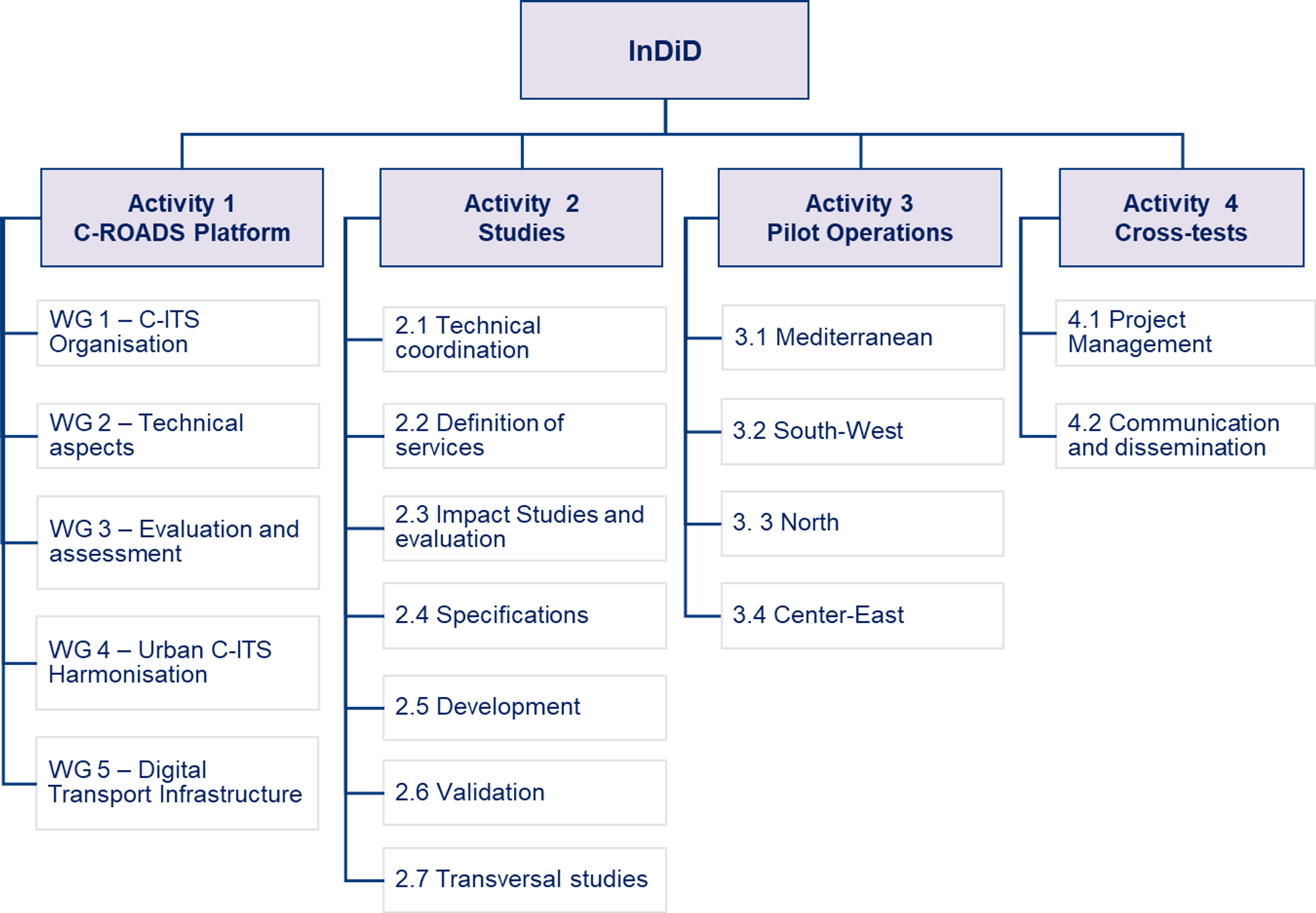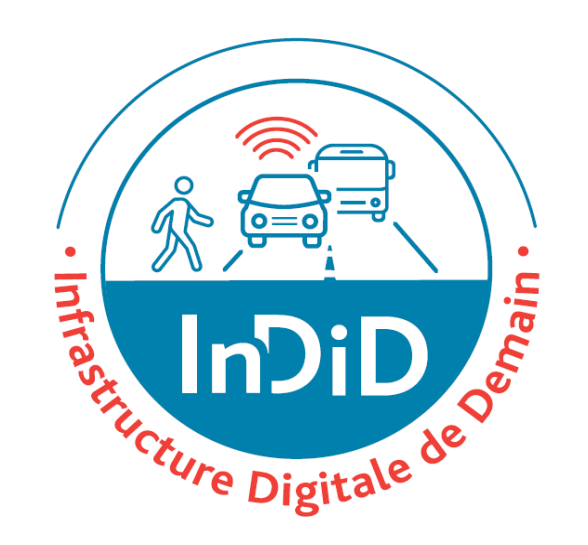Project design
Activity 1 Activity 1 corresponds to interactions with the European C-ROADS platform, through its working groups. Within the context of InDiD, 5 working groups were active:

- Working Group 1 (WG1), dedicated to the organisational and legal aspects of harmonising the deployment of C-ITS;
- Working Group 2 (WG2), dedicated to technical aspects, technical standardisation and interface issues. This working group is itself divided into 5 Task Forces that address the following objectives:
- Task Force 1 - Security Aspects: Harmonise use case specifications on security aspects.
- Task Force 2 - Service Harmonisation: : Agree on a single shared functional description for C-ITS services (including urban C-ITS).
- Task Force 3 - Infrastructure Communication: Harmonise how C-ITS services (including urban C-ITS) are transmitted over the existing infrastructure.
- Task Force 4 - Hybrid Communication: Consider both short-range and long-range communication and resolve associated issues.
- Task Force 5 - Cross-testing and Validation: Develop a common basis and conduct cross-testing and validation to ensure the interoperability of the services implemented.
- Working Group 3 (WG3), to define common evaluation methods for the various C-ITS services;
- Working Group 4 (WG4) for cities wishing to get involved in the C-ROADS Platform and discuss their specific issues regarding the development of C-ITS;
- Working Group 5 (WG5) dedicated to the Digital Transport Infrastructure, with the aim of defining all the requirements of the entire infrastructure for widespread digitalisation.
Activity 2 includes all the studies that need to be carried out collectively to ensure the interoperability of the many components of the InDiD system:
- Road Side Units (RSU),
- On-board units (OBUs) for mass-production vehicles,
- On-board units (OBUs) for road operator vehicles that include RSU functionalities,
- The interface platform between the road operator's traffic management centre and the roadside units (RSU),
- The security system, based on a Public Key Infrastructure (PKI), covering various aspects (integrity, confidentiality, traceability, protection of privacy, authentication).
This involves common specifications, coordinated development and component validation, including interoperability tests. This validation phase is conducted in three stages: laboratory tests, closed road tests and open road tests.
Activity 3 is decentralised through 4 pilot sites, themselves divided into sub-sites. It includes procurement and development activities at each site, as well as the deployment of components at the pilot sites and in the cars once they have been validated.
Activity 4 is dedicated to project management and communication: it defines the general organisation of the project, internal and external communication and relations with the European Commission.
Project management is based on three principles:
- Collegiality: the steering committees take all decisions unanimously for the 4 activities,
- Subsidiarity: each sub-activity has a dedicated coordinator who reports to the relevant steering committee,
- Transparency: a collaborative space allows documents to be shared with all project partners.
